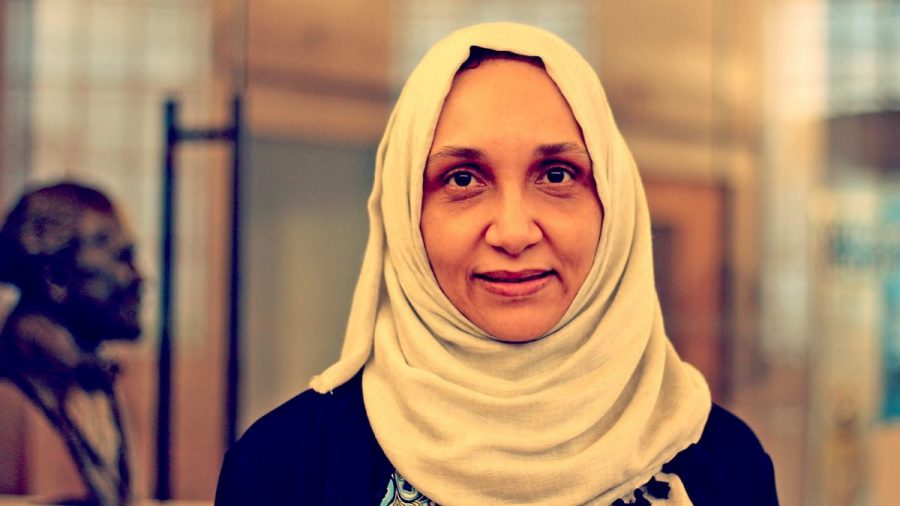@ Aberdeen May Festival, on Sat 28 May 2016
The marquee tent erected in the pleasant grounds of Aberdeen University is full, as the audience waits for the softly spoken Leila Aboulela, to begin her May Festival reading. Dr Wayne Price, writer and senior lecturer, introduces Aboulela, who grew up in Khartoum but now lives in Aberdeen. Winner of the first Caine Prize for African writing, three times long-listed for the Orange Prize for fiction, winner of the Scottish Book of the Year, shortlisted for the Commonwealth Prize, Aboulela has been honoured with a string of awards and yet her manner is unassuming, as she jokes that she recognises several faces in the audience.
However, Aboulela’s unpretentiousness on stage belies a ferocious talent, with a back catalogue of writing that includes The Translator, Minaret, and Lyrics Alley, as well as a collection of short stories and several radio plays.
She dons striking fire engine red framed spectacles and begins reading from her latest novel, The Kindness of Enemies. Set in nineteenth century Russia and present day east coast Scotland, the dual narrative is connected by the real life story of warrior, Imam Shamil. It was Shamil who led the anti-Russian resistance, uniting disparate tribes, during the Caucasian war. Aboulela explains how the story centres on Natasha, a professor of history, who is studying Shamil and becomes involved with her star student, Oz.
Aboulela answers thoughtfully when asked about the themes being explored in The Kindness of Enemies, those of how teachers are now being asked to monitor students for radicalisation and how ordinary people can find themselves in extraordinary situations. She is diplomatic, clarifying that she doesn’t have a specific opinion on these themes. Rather, when writing, she feels she’s inviting people into her world.
As research, she read both Tolstoy, who had little time for Shamil, and a diary written by Shamil’s secretary, as she wanted to compare the Muslim with the Russian view.
She confesses writing fiction gives her the freedom to show another side of events, how Muslims react to what is happening in the news and what it’s like to be a Muslim in a post 9/11 world.
In the short time we spend with her, Aboulela displays a quiet strength, a confidence in her writing and knowledge of her subject matter that in all likelihood means The Kindness of Enemies must surely add to her long string of awards.
